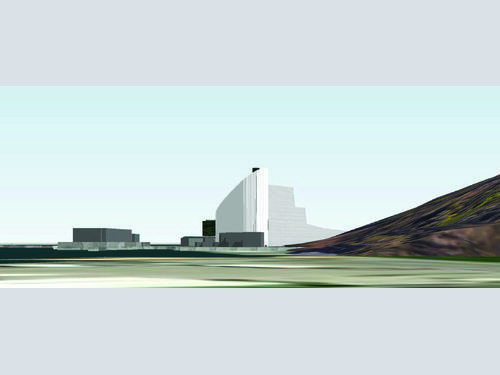Powerfuel Portland proposes £100 million Energy Recovery Facility in Dorset
Powerfuel Portland has unveiled plans to build a £100 million Energy Recovery facility (ERF) on an existing unused industrial site at Portland Port, on the Isle of Portland.
The ERF would treat up to 180,000 tonnes of Refuse Derived Fuel (RDF), generating 15MW of partially renewable low carbon energy, enough to power around 30,000 homes. The RDF will comprise household, commercial and skip waste after recyclable materials have been removed. The ERF will not treat hazardous or clinical waste.
The site at Portland Port already has planning consent for an energy plant which would have used either vegetable oil or waste rubber crumb from tyres. Full planning permission was granted in January 2010 for the construction of an ‘energy plant’ to be fuelled by vegetable oil delivered by ship. In July 2013 the original permission was varied to permit end of life tyres to be used as fuel. The ERF that Powerfuel Portland is proposing would produce low carbon energy much more efficiently than the consented scheme.
Powerfuel is an independent developer of low carbon projects. Its Directors, Steven McNab and Giles Frampton, have extensive experience of developing large-scale renewable projects in the UK and overseas.
Steven McNab, Director at Powerfuel Portland, said: “There is currently a shortage of waste treatment facilities in Dorset and many tonnes of waste is exported out of the county to either be treated elsewhere or sent to landfill. Our proposed facility uses tried and tested technology to provide a practical solution to the UK’s significant waste disposal problems.”
The RDF will arrive at the site either by road or by sea. Deliveries by sea will be wrapped and baled, while road deliveries will be either baled or in sealed vehicles. Once inside the facility the fuel will be de-baled, shredded and screened before passing through a boiler on a grate to generate superheated steam to generate electricity in a steam turbine.
The ERF could also feature a local heat network to provide cheaper and more sustainable heat for local services, businesses and housing projects. Direct power supplies to major companies could also be made available. As an example, the Port would like to provide ‘shore power’ for visiting ships.
Giles Frampton, said: “We think this is a really exciting project that will help to solve the issue of Dorset exporting its waste out of the county at significant cost. Our plan is proposing an effective, proven technology, used in more than 40 similar facilities operating across the UK, which will help solve the waste issue in the area and generate 15MW of low carbon energy to improve capacity on the Isle of Portland.”
The entire Isle of Portland is served solely by an 18MW grid supply, meaning that power is constricted on the island, which has proved to be a barrier to economic growth. The electricity generated by the ERF will help counter this power issue and enable Portland and its port to attract new businesses with the prospect of providing low carbon heat and power.
Powerfuel Portland is embarking on a public consultation campaign prior to submitting a planning application to Dorset Council in the New Year.
If given the go-ahead the project will provide approximately 350 construction jobs and then 30-35 long-term, permanent jobs directly at the plant, plus up to 45 additional jobs in the local supply chain.
